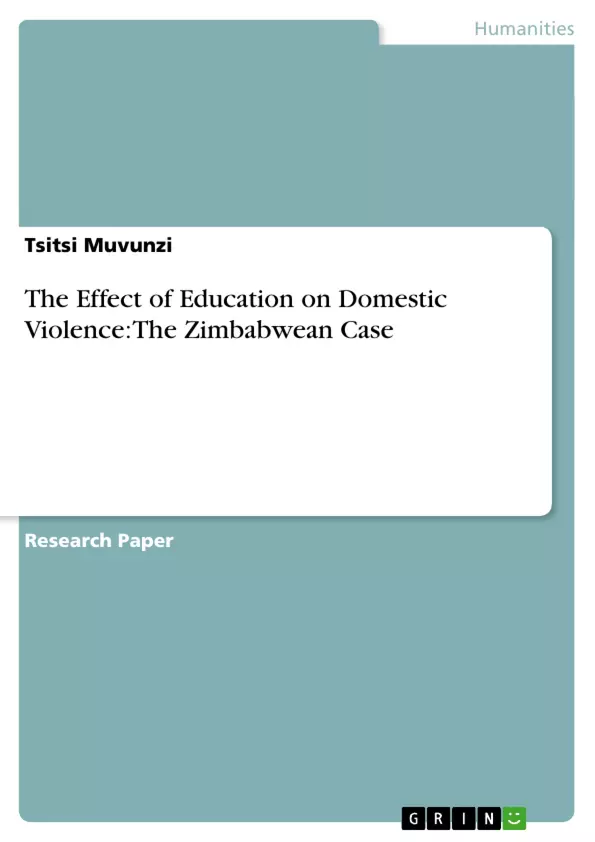One of the generally agreed techniques likely to facilitate high reductions of incidences of domestic violence among women is to empower them through education. This is because education has been regarded as the most significant instrument for changing women's subjugated position in the society. It not only develops the personality and rationality of individuals, but qualifies them to fulfill certain economic, political and cultural functions and hence improves their socio-economic status. The Zimbabwean case reveals that men and women with more than secondary education are less likely to justify domestic violence. However, the Zimbabwean case is perculia in the sense that domestic violence permeates the whole society regardless of educational levels. Educated men and women perpetrate and experience domestic violence respectively irrespective of their educational levels. It is in this regard that this paper sought to establish why this is so by scrutinizing the education curriculum as well as analyzing whether the legal framework has contributed to reducing domestic violence.
Inhaltsverzeichnis (Table of Contents)
- Introduction
- Research Questions
- Findings
- Education Level and Domestic Violence
- Attitudes towards Wife Beating and Education Levels
- Findings on Physical Violence by Education Level
- Experiences of Sexual Violence by Education Level
- Spousal Violence by Husband's Education Level
- Experiences of Spousal Violence by Educational Differences
Zielsetzung und Themenschwerpunkte (Objectives and Key Themes)
This paper aims to investigate the relationship between education and domestic violence in Zimbabwe. It seeks to understand why education has not effectively reduced incidences of domestic violence, despite its potential for empowering women. The paper examines the education curriculum and legal framework in relation to domestic violence.
- Impact of Education on Domestic Violence
- Gender-Based Violence in Zimbabwe
- Attitudes Towards Wife Beating
- Effectiveness of Legal Framework
- Role of Education Curriculum
Zusammenfassung der Kapitel (Chapter Summaries)
The paper begins by defining domestic violence and its prevalence in Zimbabwe, highlighting the importance of education in combating this issue. It then delves into the study's research questions, focusing on the effectiveness of education in reducing domestic violence and the role of legal frameworks. The paper then presents findings on the relationship between education level and attitudes towards wife beating, physical violence, sexual violence, and spousal violence. It analyzes the impact of education attainment levels on both perpetrators and victims of violence, exploring the influence of educational differences between spouses.
Schlüsselwörter (Keywords)
This study explores key concepts such as domestic violence, gender-based violence, education, empowerment, legal framework, Zimbabwean society, and statistical analysis. It examines the impact of education on attitudes towards wife beating, physical violence, sexual violence, and spousal violence, emphasizing the complex relationship between education and domestic violence in Zimbabwe.
- Quote paper
- Tsitsi Muvunzi (Author), 2011, The Effect of Education on Domestic Violence: The Zimbabwean Case, Munich, GRIN Verlag, https://www.grin.com/document/214166



